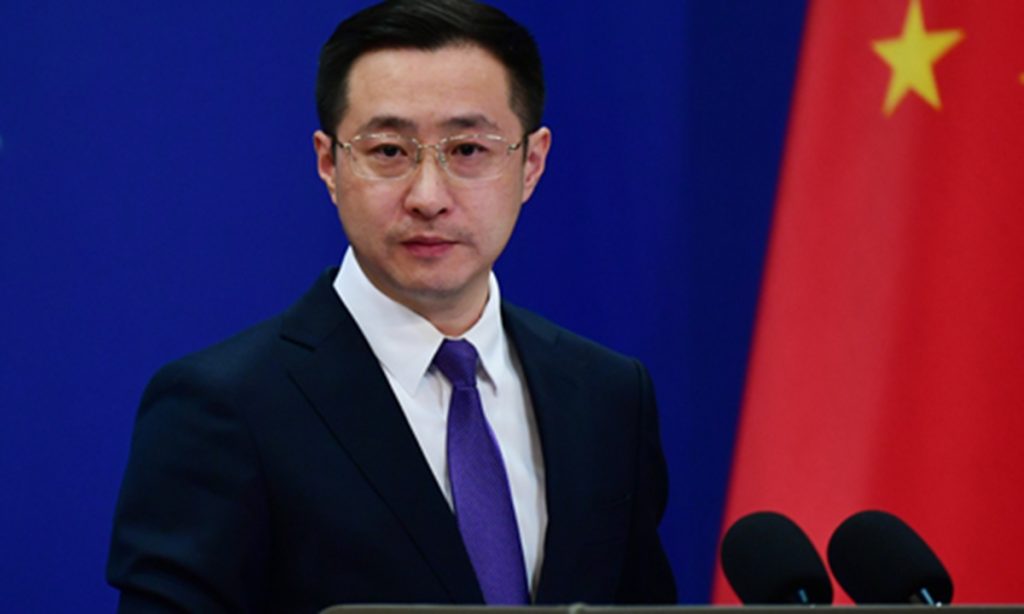FM urges Japan, EU not to harm interests of others as Tokyo, Brussels boost defense ties

Security and defense cooperation between various parties should be conducive to regional peace and stability, and not target any third party or undermine the security interests of other countries, the Chinese Foreign Ministry said on Friday, in response to a new EU-Japan security and defense pact signed during the Tokyo visit of EU High Representative for Foreign Affairs and Security Policy Josep Borrell.
Lin Jian, a Chinese Foreign Ministry spokesperson, made the remarks at a press briefing on Friday. He said due to historical reasons, Japan's military and security moves have been closely watched by the international community and its Asian neighbors, urging Japan to earnestly draw lessons from history, adhere to peaceful development, respect the security concerns of its neighbors in Asia, and stay prudent in military and security areas.
We also hope that the EU will not interfere in the disputes on territorial and maritime rights and interests between regional countries, but instead play a constructive role for regional peace, stability, and development, Lin said.
On Friday, Borrell co-chaired the first EU-Japan Strategic Dialogue together with Foreign Minister Takeshi Iwaya in Tokyo, the first stop of his East Asia tour to Japan and South Korea from November 1 to 4, according to the Delegation of the European Union to the Republic of Korea.
During the dialogues, Japan and the EU agreed to launch a defense and security partnership that will lay the ground for closer cooperation in critical areas such as maritime security and tie-ups in the defense industry, according to Japanese media.
More concretely, these include more joint training and capacity-building, finding ways to jointly counter terrorism and exploring potential avenues for joint initiatives in the defense industry, said the Japan Times. Details of the agreement have not been released as of press time.
According to the Japan Times, Borrell and Iwaya have expressed concerns about tense territorial and maritime disputes in the East and South China Sea, and reaffirmed the "strategic importance" of peace and stability in the Taiwan Straits for regional and global security and prosperity.
Lü Chao, director of the Institute of US and East Asian Studies at Liaoning University, told the Global Times that both Japan and the EU are clearly targeting a third party to create a confrontational camp and a Cold War mentality, and Asian countries should be vigilant about it.
He said that the EU has traditionally been more focused on economic and political affairs, but now, it is also showing a trend of "NATO-ization," with a greater focus on defense and security, following NATO's Asia-Pacific pivot.
EU and Japanese officials also pointed out that the security of the Euro-Atlantic and "Indo-Pacific" is inseparable.
The EU official's visit to Japan and South Korea to discuss security cooperation is a very dangerous move that could make the situation on the peninsula even more dangerous and unpredictable, Lü noted.
In terms of what is available from reports and their respective military strengths, Japan's military cooperation with the EU is still more of a political and symbolic one, Shen Yi, a professor at Fudan University, told the Global Times on Friday.
Their defense and security cooperation is more about an alternative means for the EU and Japan to prevent the negative impact of a possible Trump return and his intention of withdrawing from alliances, Shen said.
As for Japan, Shen said that it is also using defense cooperation with the EU as "symbolic progress" that "Japan has taken another step toward normalcy," which could be helpful for some Japanese politicians to further hollow out Article 9 of Japan's pacifist constitution.